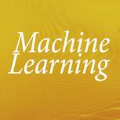The increasing capabilities of Machine Learning (ML) models go hand in hand with an immense amount of data and computational power required for training. Therefore, training is usually outsourced into HPC facilities, where we have started to experience limits in scaling conventional HPC hardware, as theorized by Moore's law. Despite heavy parallelization and optimization efforts, current state-of-the-art ML models require weeks for training, which is associated with an enormous $CO_2$ footprint. Quantum Computing, and specifically Quantum Machine Learning (QML), can offer significant theoretical speed-ups and enhanced expressive power. However, training QML models requires tuning various hyperparameters, which is a nontrivial task and suboptimal choices can highly affect the trainability and performance of the models. In this study, we identify the most impactful hyperparameters and collect data about the performance of QML models. We compare different configurations and provide researchers with performance data and concrete suggestions for hyperparameter selection.
翻译:暂无翻译



